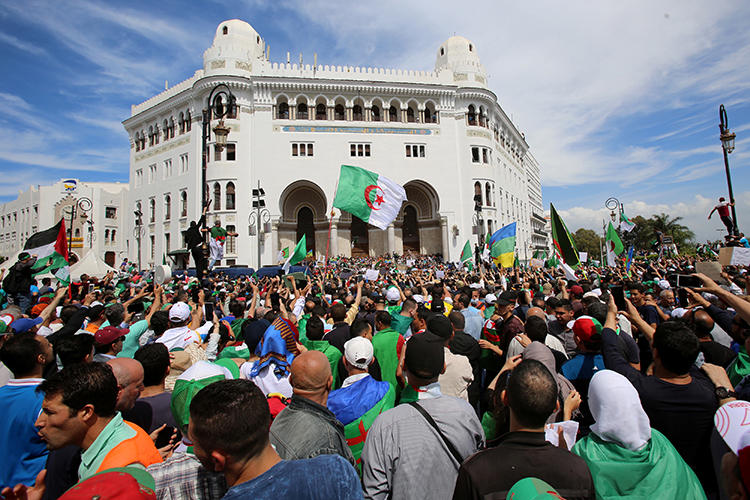New York, June 17, 2019 — Independent news websites Tout Sur l’Algérie and Algérie Part have been widely inaccessible within Algeria since June 12, according to local journalists and news reports. The apparently targeted disruption took place amid anti-government protests that have been ongoing for nearly four months, and began shortly before several social media services were blocked in a shutdown that local news reports said coincided with high school exams on June 16.
Tout Sur l’Algérie director Lounes Guemache told CPJ by online message that the outlet became suddenly inaccessible on several networks on June 12, including broadband and mobile networks provided by the state-owned telecommunications provider Algérie Télécom. He told CPJ that Tout Sur l’Algérie‘s IP address was being blocked in an act of deliberate censorship. Abderrahmane Dziri, who works for Algérie Part in a technical role, told CPJ that the website was disrupted on the same day.
“It is troubling that connections to Tout Sur l’Algérie and Algérie Part‘s websites remain disrupted at a time when online news outlets are most needed,” said CPJ Middle East and North Africa Representative Ignacio Miguel Delgado from Beirut. “Internet censorship is not acceptable at any time, and certainly not during civil unrest.”
Algérie Part said it was one of several sites affected by censorship ahead of high school exams beginning June 16. Internet service nationwide was disrupted and social media platforms such as Facebook, Twitter, Instagram, YouTube, and WhatsApp were difficult to access or blocked, according to international censorship watchdog NetBlocks, Tout Sur l’Algérie, and other outlets. Authorities have ordered the internet to be shut down ahead of exams in the past, according to news reports. But unlike last year, no disruption was officially announced last week, the reports said.
Tout Sur l’Algérie and Algérie Part were not informed that their sites would be blocked, the people who worked there told CPJ. Guemache told CPJ that Algérie Télécom denied any involvement in blocking Tout Sur l’Algérie, and that Algerian authorities have not responded to the website’s inquiries about the apparent censorship.
Algérie Télécom did not immediately respond to CPJ’s emailed request for comment. Algeria’s Ministry of Communications did not immediately answer CPJ’s request for comment submitted through their website.
Several people in Algeria independently confirmed for CPJ that they were unable to access both websites through Algérie Télécom and its mobile subsidiary Mobilis; one said both sites were still accessible via Algérie Télécom on June 13. Screenshots of error messages viewed by CPJ said the sites could not be reached. One person could access the sites via Ooredoo, but not via Djezzy, the two privately owned mobile service competitors to Mobilis. CPJ accessed both websites from the United States and from Beirut on June 17.
Both sites report experiencing similar disruptions unrelated to exam restrictions in the past. Tout Sur l’Algérie was blocked for over a month in October 2017, CPJ reported at the time. Dziri said Algérie Part was inaccessible for about a day in May.
Anti-government protests swept Algeria in February when then President Abdelaziz Bouteflika announced he would run for a fifth term in office; demonstrators continued to demand the removal of the country’s ruling elite after he stepped down in April, according to news reports.
NetBlocks reported that the internet was shut down in parts of the country in March amid the unrest. Algeria’s state broadcaster suspended at least two television journalists who sought to cover the protests in April and May, CPJ reported. Algerian authorities expelled AFP bureau chief Aymeric Vincenot in April, and in March expelled one Tunisian journalist and denied entry to another, according to CPJ reporting.
